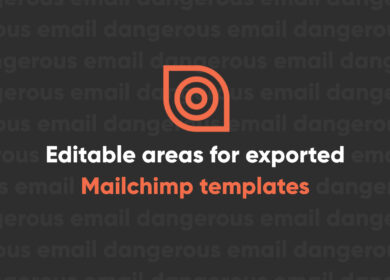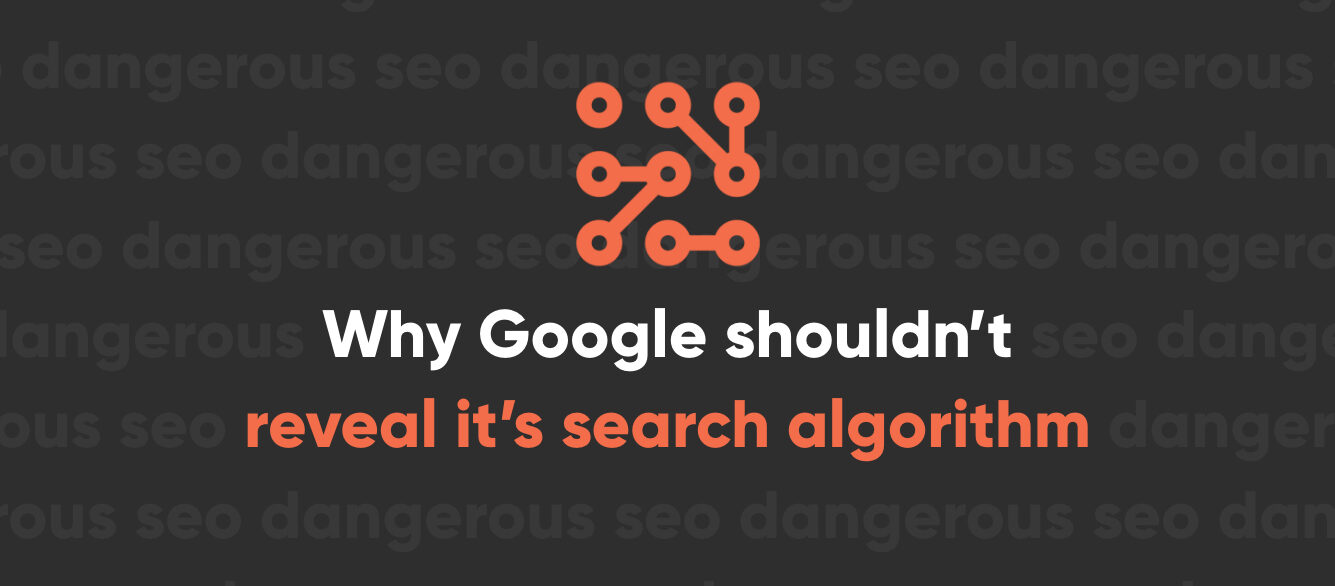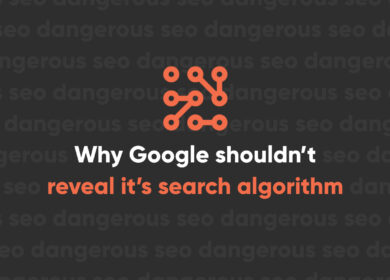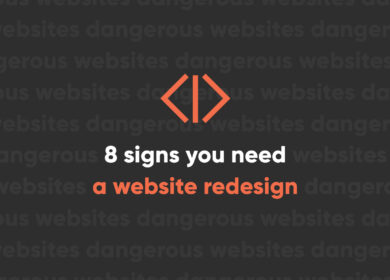
Why Google Shouldn’t Reveal Its Search Algorithm

Last week, Germany challenged Google to do the ultimate in transparency: reveal exactly how it ranks websites or be banished from the internet forever.
Okay, that’s not exactly what happened. But Germany’s Justice Minister Heiko Maas did say in an interview with Financial Times that Google should reveal its search algorithm for the sake of competition and consumer protection.
This isn’t the first battle Google has fought overseas. The search engine giant has already been put to the test in Europe with the “right to be forgotten” law, which allows private individuals to demand Google delist pages about them. Thousands of requests later, Google may have to shell out $6 billion in fines to the EU. But that’s another matter altogether. For now, let’s focus on Google’s big secret and this bold request.
Google’s Response
As expected, Google did not immediately throw up a new Google+ posting with the secret formula revealed. Instead, Google responded by processing billions of search results and effectively ignoring Maas.
This comes as no surprise to anyone familiar with the internet. Google has clearly stated in the past that it won’t reveal its algorithm for two primary reasons:
- The algorithm is a business secret. Revealing it would give an edge to the competition.
- Revealing the algorithm would be an invite to all spammers in the world, resulting in a vastly inferior web.
The World’s Response
After the interview went live, the world responded with two basic reactions (and thousands of articles about it):
- Google is a monopoly. They need to share their formula to make the internet fair.
- Google doesn’t need to share anything. Telling Google to share its algorithm is like telling Coke to make its secret recipe public.
Currently, Google owns 68% of the search market share in the U.S., 90% in Europe, and 93% in Germany. Does that constitute a monopoly? By definition, no. Google clearly isn’t the only option available when it comes to searching online. But things aren’t necessarily that simple. A business can behave like a monopoly even if it isn’t technically one.
While some say this is just an issue of transparency, it’s really about power. There’s a reason no one is going after Bing’s or DuckDuckGo’s algorithms. Google controls so much of the market share that companies are living and dying by the search engine. Of course, any company with a halfway decent marketing plan knows better than to rely solely on one source for its business.
Ultimately, Maas’s argument is rather short-sighted. Even if Google were to reveal its algorithm, there will still only be ten results on page one. Thus, we’re back to where we started: if you aren’t on page one, you don’t exist. And you still may not know why you aren’t on page one.
Should Google Reveal the Algorithm?
In short, no.
There are many reasons why we might jump on Google’s case:
- Google is a monopoly (debatable)
- Google makes too much money at our expense (they make money in exchange for providing a service)
- Google invades my privacy (read their terms of services)
- Google+ is stupid (no comment)
- Google ruined my business when it penalized my site (read their webmaster guidelines)
As fun as it is to play victim and hate on the big guy, there’s no denying that Google is where it is today because it provides a valuable service. And it does it without charging us money (I won’t go as far as to say we get it for free).
Like other companies, Google should be entitled to trade secrets. Let’s take a look at the Coke analogy:
Telling Google to reveal its algorithm is like telling Coke to share its secret formula.
This is a tricky one. As many self-appointed internet geniuses have pointed out, Coke’s formula can be determined by chemists. Thus far, it has proven impossible to crack Google’s algorithm. Be that as it may, it doesn’t mean that Google’s algorithm can’t be cracked. However, this shouldn’t matter. The complexity of a business’s formula in no way determines whether or not it should be public knowledge. Furthermore, other search engines use algorithms that function pretty similar to Google’s. In other words, making something that tastes like Coke isn’t that much different from making a search engine that looks like Google. Getting people to use it, now that’s the tricky part.
The Main Google Defense
Trade secrets aside, there is a bigger reason why Google shouldn’t reveal its algorithm. Let’s imagine for a moment they did make it public. Here’s what happens:
- Every spammer in the universe suddenly knows exactly how to get a website to number one. An intensely competitive market of “Google SEO experts” develops and begins ripping off business owners with guarantees of number one rankings (yeah, we sort of have this already, but imagine it a hundredfold). The constant “perfection” of websites has one of the following consequences:
- The search results are in constant fluctuation where no site can stay on page one for more than a day. Searchers can never find what they want.
- The search results become filled with garbage websites that don’t meet the needs of the users.
- The search results don’t change at all (after all, if everyone is gaming the system, won’t the best sites just stay on top?).
- Every self-proclaimed coding wizard suddenly creates a search engine that copies Google’s formula. Thousands of Google copycat websites appear, resulting in a watered-down market with no winners. The exact same websites will appear at the top of every search engine (based on the above, these search results probably won’t meet the needs of the user). Users will jump from search engine to search engine in a desperate attempt to find what they need. Now, instead of just being tracked by Google, we will be tracked by thousands of search engines. People will become less trusting of the internet, resulting in something close to economic collapse.
Maybe that’s not exactly what will happen, but it’s at least in the ballpark.
As consumers, we feel entitled to certain things. We want to know the ingredients in our food. We want to know where the products we buy come from. We want to know when we’re being tracked. We want to know that our money and information is safe. In other words, we want to know what we’re getting—at least to an extent.
When it comes down to it, we already know how Google ranks sites, just like we already know how Coke makes its beverages. We may not have the exact methodology down, but we do know this: When we search for something on Google, we’re probably going to find what we’re looking for without too much trouble.
Wait. That’s not all we know. Google may not share its exact formula, but it is pretty transparent when it comes to telling websites what they shouldn’t do. If we follow Google’s guidelines and provide quality content and great user experience, then we generally will be okay.
As long as Google keeps delivering a great product, then we will keep using it. The public revelation of Google’s algorithm won’t help anyone in the long run. Google, you can keep your secrets.

Nate Tower
Nate Tower is the President of Perrill and has over 12 years of marketing and sales experience. During his career in digital marketing, Nate has demonstrated exceptional skills in strategic planning, creative ideation and execution. Nate's academic background includes a B.A. with a double major in English Language and Literature, Secondary Education, and a minor in Creative Writing from Washington University. He further expanded his expertise by completing the MBA Essentials program at Carlson Executive Education, University of Minnesota.
Nate holds multiple certifications from HubSpot and Google including Sales Hub Enterprise Implementation, Google Analytics for Power Users and Google Analytics 4. His unique blend of creative and analytical skills positions him as a leader in both the marketing and creative worlds. This, coupled with his passion for learning and educating, lends him the ability to make the complex accessible and the perplexing clear.



